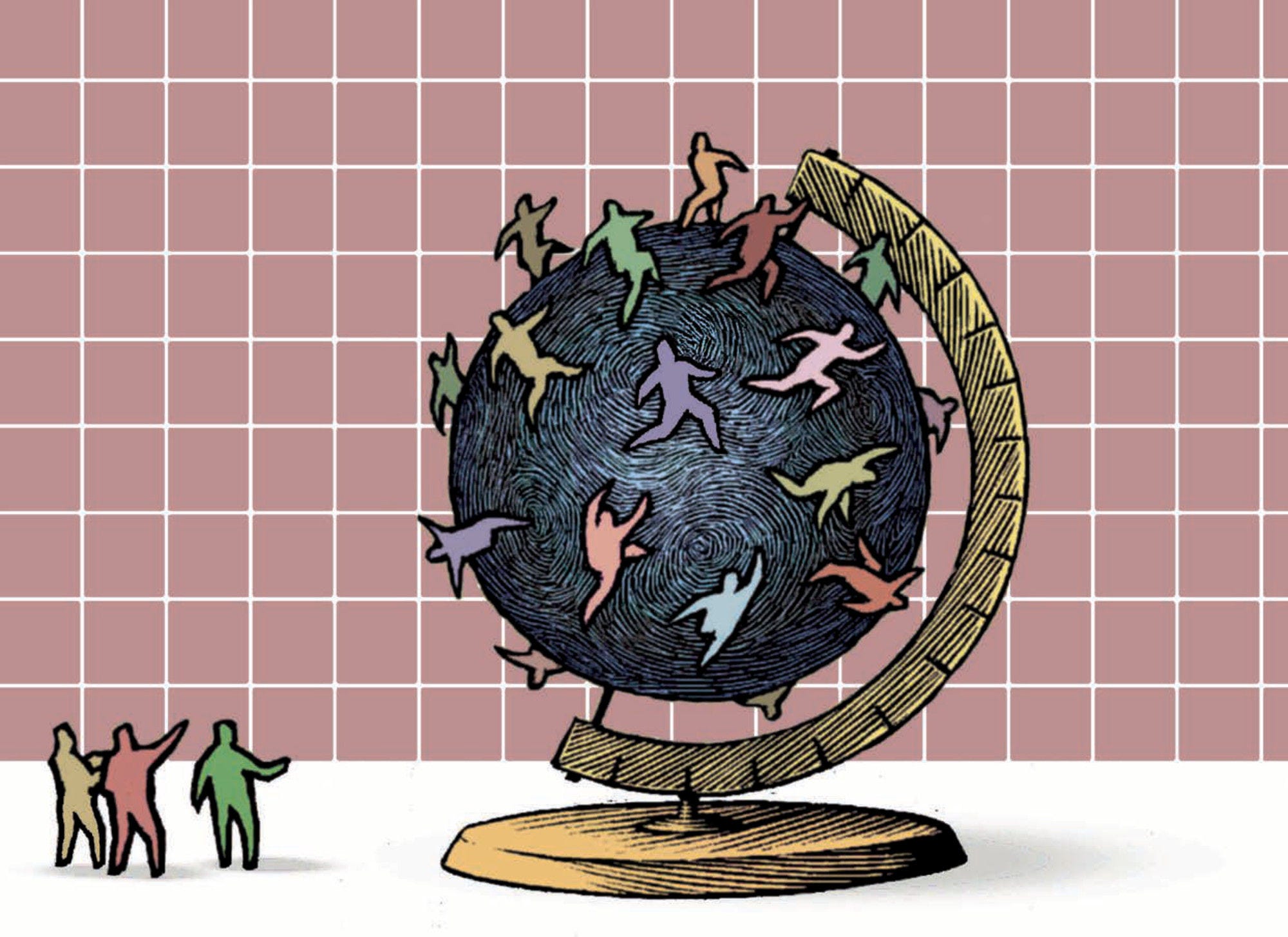In 2017, Norway received 49 000 new immigrants on a long-term or permanent basis (including changes of status and free mobility), ‑16.1% compared to 2016. This figure comprises 49.1% immigrants benefitting from free mobility, 5.8% labour migrants, 29.2% family members (including accompanying family) and 15.9% humanitarian migrants.
Around 3 800 permits were issued to tertiary-level international students and 7 500 to temporary and seasonal labour migrants and trainees (excluding EU migration). In addition, 22 900 EU postings were recorded in 2017, a decrease of 4% compared to 2016. These posted workers were generally on short-term contracts.
Syria, Poland and Lithuania were the top three nationalities of newcomers in 2017. Among the top 15 countries of origin, India registered the strongest increase (200) and Syria the largest decrease (‑4 200) in flows to Norway compared to the previous year.
In 2018, the number of first asylum applicants decreased by 24.7%, to reach around 2 600. The majority of applicants come from Turkey (800), Syria (400) and Eritrea (200). The largest increase since 2017 concerned nationals of Turkey (600) and the largest decrease nationals of Eritrea (‑600). Of the 2 100 decisions taken in 2018, 68.5% were positive.
Emigration of Norwegians to OECD countries decreased by 1% to 8 700. One in four (23.6%) migrated to Sweden, 16.2% to Denmark and 13.1% to Spain.
Most of the measures taken by the parliament in response to the large number of asylum seekers arriving to Norway in 2015 entered into force during 2016‑17. The recent legislative amendments are of a less comprehensive nature. Among these, new legislation regarding the use of coercive measures in immigration related cases has entered into force. Moreover, new legislation makes it possible to refuse residence permits and to allow expulsion if the applicant is or could have been excluded from refugee status in accordance with the Refugee Convention. The provision regulating the time-limited residence permit for unaccompanied minors between 16 and 18 years was amended, giving the immigration authorities a list of factors that should be taken into account when considering whether an unaccompanied minor should be given a time-limited permit or one without such limitation. New legislation, entering into force in 2018, allows asylum seekers access to a temporary work permit pending a final decision under certain criteria, such as participation in activities promoting integration.
Introduced as a temporary measure in 2015, the government, at the end of 2017, decided to transform the Arrival Centre into a more permanent reception facility for asylum seekers. The goal is to provide faster case processing in the initial phase. The ambition is to gather all asylum seekers in one centre and decide on 80% of the applications within three weeks at the latest, while the asylum seekers still reside at the centre. Importantly, the centre would also play a key role if a new situation with mass arrival of asylum seekers were to occur.
Conditions for trainees were clarified in 2018 to limit training to persons between 18 and 30 years of age, in an internship related to their studies. The permit is not renewable.
Norway plans to expand the existing scheme for skill recognition of vocational education to new programmes and countries over time. Since for professions requiring authorisation it may be difficult to find appropriate bridging courses, in August 2018 a new project was set up aimed at providing such bridging classes to refugees with a science or technology education (engineers) to make them more attractive to employers. A new and more comprehensive Equality and Anti-Discrimination Act entered into force from January 2018 and a new Anti-Discrimination Tribunal was established to handle complaints. Finally, the government introduced in 2018 an earmarked grant of NOK 20 million for active information on kindergarten toward minority families not yet using this service for their children. In October 2018, the government launched a new integration strategy for 2019‑2022: “Integration through education and competence”.
For further information:
www.udi.no/en
www.ssb.no/en
www.regjeringen.no/en/dep/jd
www.imdi.no/en
